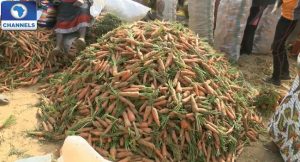
The report was released on Tuesday Nairobi, Kenya.
The African Agriculture status report says countries that embraced agriculture as a business have seen increases in food production, Gross Domestic Product and nutrition.
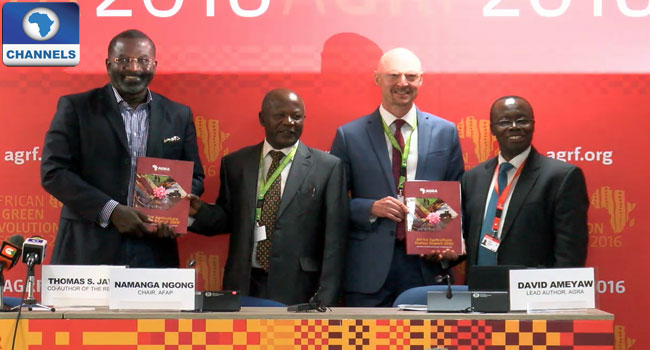
Africa remains the world’s most food insecure continent, with relatively low levels of agricultural productivity, low rural incomes, high rates of malnutrition and a worsening food trade balance.
But the trend is changing as a result of the introduction of the African Union’s Comprehensive African Agriculture Development Programme which was created in 2003.
A key component of the programme is its call for African governments to allocate 10 per cent of national budgets to agriculture and to aim for six per cent annual growth in the sector.
Safest Path For Development
Countries that adopted the policies not long after its creation have seen productivity in the agriculture sector rise between 5.9 to 6.7 per cent.

Channels Television’s correspondent, Ayoola Kassim, in Kenya quoted the Alliance for a Green Revolution in Africa which released the report, as saying that the last 10 years have made a strong case for agriculture, as a safest path for sustainable development.
“If Africa’s agriculture grows and prospers, not only will Africa be able to feed itself better, but the whole price of food in the world market will be fundamentally different,” a Professor of Agricultural, Food and Resources Economics, Thomas Jayne, said.
Nigeria is one of the 13 countries which have adopted the policy and are reaping its reward, but the authors of the report believe that these countries still have to double their efforts for a meaningful agricultural transformation.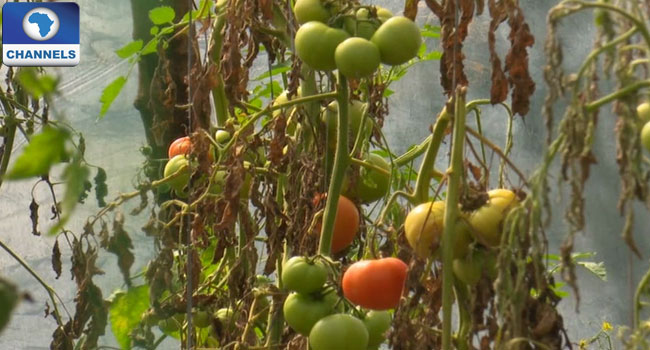
The Director for Africa, International Food Policy Research Institute, Dr. Ousmane Badiane, predicted that prices in the global market would skyrocket and asked African countries to take position by increasing involvement in agriculture.
He warned that African countries would be losing money if it they failed to take increase involvement.
“Not only will we have missed the opportunity to sell and make money, everything we are going to buy will be more costly to us. The challenge is just big. The opportunities are there and that is why we need to double our efforts just like the government and stakeholders have to go for excellence in managing the economy,” Dr. Badiane.
The challenges facing agriculture in Africa are many, but progress in the sector is possible when backed with political will, the right policies and technology transfer to improve productivity and reduce post harvest losses.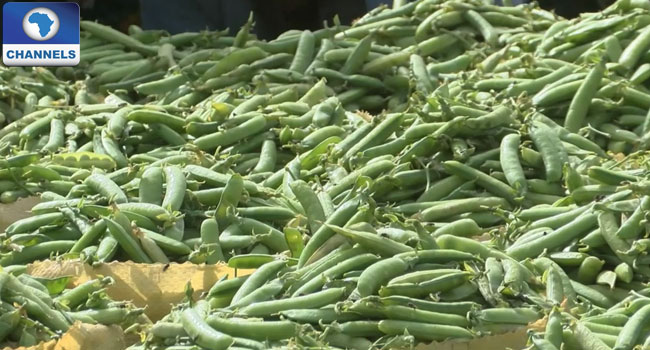
There is also the need for farmers to have access to quality seeds and of course land reforms that will free up lands for food production.
The report found out that the sustained agricultural productivity growth since 2005 had resulted in decline in poverty rates in places like Ghana, Rwanda, Ethiopia and Burkina Faso.
It also noted that agriculture had had its biggest impact in countries that moved quickly to embrace the African Union’s Comprehensive African Agriculture Development Programme (CAADP), which was created in 2003.
A key component of CAADP was its call for African governments to allocate 10 per cent of national budgets to agriculture and to aim for six percent annual growth in the sector.
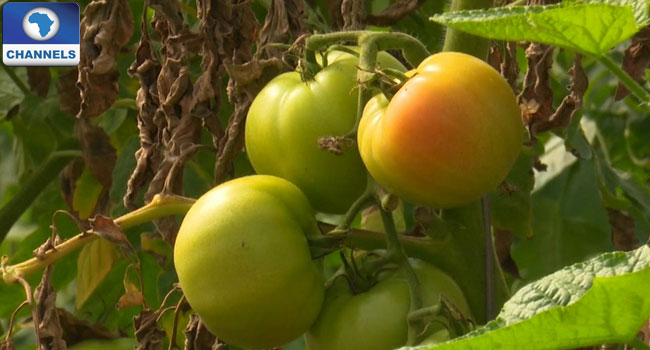
The AGRA report also noted that even if they did not hit the 10 per cent targets, early adopters of the CAADP goals have seen productivity on existing farmlands rise by 5.9 to 6.7 per cent per year.
This boost in turn helped spur a 4.3 per cent average annual increase in overall GDP. Those later to the game achieved anywhere from a 3 to 5.7 per cent growth in farm productivity and a 2.4 to 3.5 per cent increase in GDP.
Meanwhile, countries that sat on the sidelines saw farm productivity rise by less than three per cent and GDP rise by only 2.2 per cent.
The trend is similar for declines in malnutrition, with countries that have embraced the CAADP process experiencing annual declines ranging from 2.4 to 5.7 percent, while those who have not averages only a 1.2 percent decline.
“It is clear that with agriculture now back at the top of Africa’s development agenda, the foundations have been laid for a renaissance in African agriculture that could quickly deliver benefits to the broader economy,” one of the report’s lead authors, who is head of Monitoring and Evaluation for AGRA, David Ameyaw, said.
Former AGRA President, Dr. Namanga Ngongi, who chairs the Board of Trustees for the African Fertilizer and Agribusiness Partnership, said the report should set the stage for a productive meeting when political leaders and agriculture experts converge on Nairobi later this week.
“My hope is that this incisive analysis of the current state of African agriculture will stimulate a more profound and impassioned debate about the kinds of investments and initiatives now required to make transformation of this sector a reality,” Dr. Ngongi said.




